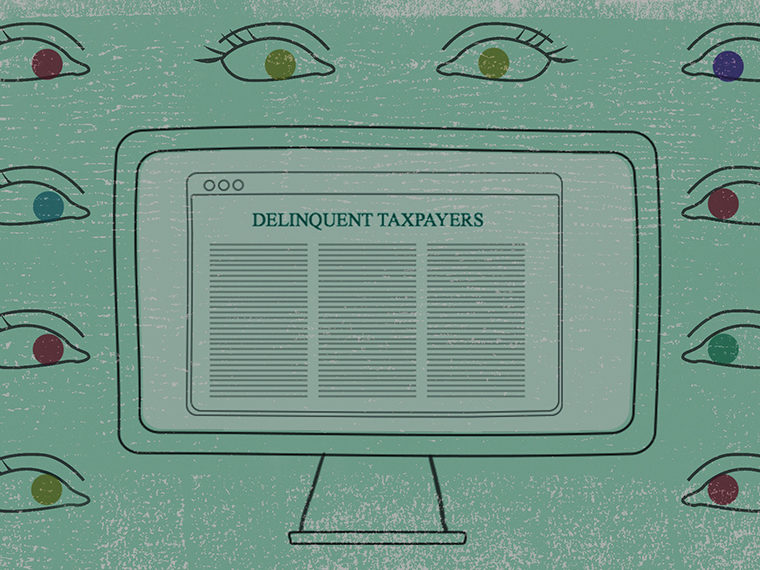Research undermines the notion that companies coldly calculate tax avoidance
The prevailing theory of business tax evasion frames it as a rational decision: Companies weigh the penalties they’ll pay if caught against the money they’ll keep if they aren’t. It would follow, then, that threatening an audit wouldn’t necessarily curb cheating, since it’s possible to assess an audit threat rationally and still decide cheating is worth the risk.
In the U.S., for instance, the Internal Revenue Service helpfully publishes its audit activity and how much the efforts recover. Roughly 1 percent of corporate returns were audited in 2015. After the audits, the IRS sought, on average, an additional $28,601 for each return audited via correspondence and, on average, an additional $761,033 for audits done in person. The IRS’s detailed data is almost an invitation to risk-reward calculation.
But new research suggests that audit threats are actually effective because, simply put, they scare people. At least in Uruguay.
Opt In to the Review Monthly Email Update.
In an NBER working paper, Marcelo Bérgolo, Rodrigo Ceni and Matias Giaccobasso of IECON-UDELAR, Guillermo Cruces of CEDLAS-UNLP and UCLA Anderson’s Ricardo Perez-Truglia show what happens when that theoretical model of tax evasion is tested in the real world. Their results indicate that, once faced with the possibility of an audit, no matter the probability or penalty, firms tend to pay more in taxes going forward.
Tax compliance varies by country, reflecting economic, bureaucratic and cultural factors. The researchers chose Uruguay largely because it’s an egalitarian, middle-income, economically stable country whose levels of tax regulation and evasion are on par with more developed nations. With a population of 3.4 million and strong industries dominated by agricultural exports, it’s a good microcosm for business elsewhere. It’s also important to note the Uruguayan tax agency was willing to collaborate and provide access to taxpayers.
When the authors conducted the research, there were 120,125 firms registered with Uruguay’s tax agency. The authors devised a field experiment in which various letters were sent to subsets of those business taxpayers, after which both tax payments and survey responses were measured.
About 20,000 small and midsized firms were randomly assigned to receive different letter types, each with subtle variations, including these:
- The “baseline” letter contained a brief boilerplate statement about tax audits, and said the recipient had been randomly selected to receive the letter and that it was for information only.
- The “audit-statistics” letter was identical to the baseline except for an added message about the general probability of that particular firm’s being audited and the penalties that firm might have to pay.
- The “audit-threat” letter was identical to the baseline except for an added message informing firms that they’d been identified for potential auditing and that they had either a 25 percent or a 50 percent chance of an actual audit.
Sending a letter with information about the audit process had a positive effect on tax compliance. This effect is not only statistically significant, but also large in magnitude.
However, how the firms reacted is inconsistent with the prevailing economic theory. If you follow the logic of the prevailing theory, different letters should have elicited different reactions. Companies that were underestimating audit probability or the penalty involved, for instance, should have increased compliance. The authors do not find evidence in favor of this hypothesis. Similarly, firms that were randomly assigned to have a higher audit probability should have increased their tax compliance more than firms that were assigned to a lower probability. The authors do not find evidence in favor of this hypothesis either.
These findings led the authors to conclude that companies are not, in fact, reacting to audit prospects rationally — that is, absorbing the information and modifying their behavior (or not) accordingly. Instead, it appears that audit threats are to tax evaders what scarecrows are to birds: potentially harmless but effective deterrents.
Featured Faculty
-
Ricardo Perez-Truglia
Professor of Economics; Justice Elwood Lui Endowed Term Chair in Management
About the Research
Bérgolo, M., Ceni, R., Cruces, G., Giaccobasso, M., & Perez-Truglia, R. (2017). Tax audits as scarecrows: Evidence from a large-scale field experiment. doi: 10.3386/w23631






